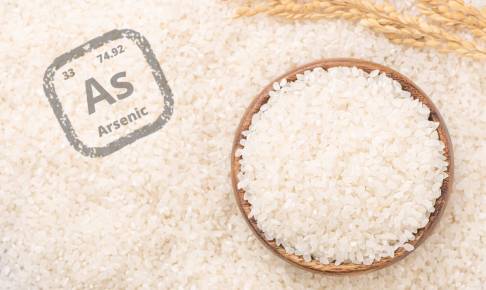Even more baby foods contain dangerous levels of toxic heavy metals, according to new disclosures
Earlier this year, in February 2021, the Subcommittee on Economic and Consumer Policy released its first report “Baby Foods Are Tainted with Dangerous Levels of Arsenic, Lead, Cadmium, and Mercury.” In that report, it was revealed that different businesses' infant meals had hazardous amounts of harmful heavy metals.
A recent staff study from Subcommittee on Economic and Consumer Policy, which was published in September 2021, revealed high levels of hazardous heavy metals in baby food are still present and it demonstrates the industry's inability to stop detrimental practices that pose significant health hazards to infants and toddlers. According to the report, despite internal corporate rules and test findings, manufacturers continue to distribute these goods without any warning label. The FDA and industry are given suggestions, throughout this study, to reduce harmful material in infant meals.
Throughout the report different findings by the Subcommittee have been discussed. Firstly, multiple samples of Beech-Nut and Gerber newborn rice cereals showed more inorganic arsenic than the FDA's 100 parts per billion (ppb) limit, according to FDA-funded testing done by the State of Alaska. Secondly, most infant food producers, according to the Subcommittee, do not test their final goods at all. Instead, they simply test individual components and use the findings to predict hazardous heavy metal levels in their final goods. Toxic heavy metal levels in final goods, on the other hand, were overestimated by 28%. Following, Plum Organics infant meals are contaminated with high amounts of dangerous heavy metals, according to internal business papers and lab data acquired by the Subcommittee. Lastly, Walmart took a big step backwards in safeguarding infants from harmful heavy metals in 2018 when it established an internal maximum inorganic arsenic level for finished baby meals of 23 ppb. However, later, Walmart dropped the more protective regulation in favor of one that allows 100 parts per billion inorganic arsenic in infant meals.
The Subcommittee urges the FDA to establish standards for arsenic, lead, cadmium, and mercury in infant meals, through following two recommendations: the levels of toxic heavy metals should be published as soon as possible and the requirement for finished-product testing should be made mandatory. Moreover, the industry received two recommendations as well from the Subcommittee. First, “Finished-Product Testing”, if the FDA does not compel manufacturers to test their finished goods for harmful heavy metals instead of only the components, they should do it on their own. Second, “Voluntary Phase-Out of Toxic Ingredients”, manufacturers should proactively discover replacements for toxic heavy metal-containing foods or phase out goods that include large quantities of ingredients that often contain heavy metals.
Source:






















